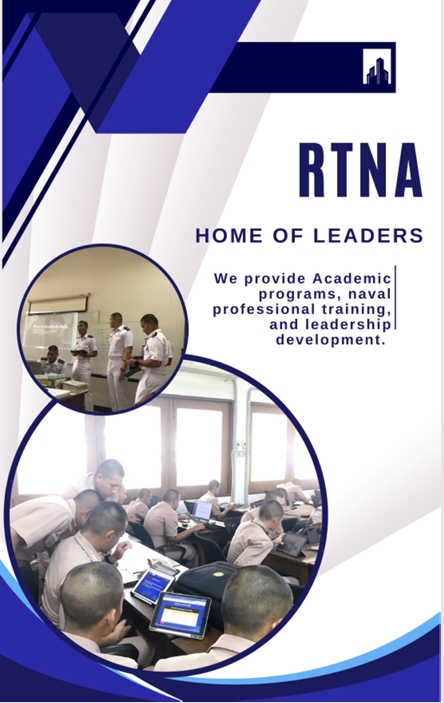The development of school administration model 5MSG for development of teacher competency in learning management for raise the level of learning achievement of Phoowittaya School
Keywords:
school administration model, teacher’s learning management competency, learning achievementAbstract
The objectives of this research were to 1) study (the current conditions), problems, and guidelines for management and development of the teacher competency in learning management to raise the level of learning achievement of Phoowittaya School; 2) develop a school administration model that affects the development of the teacher competency in learning management to raise the level of learning achievement; 3) implement the developed school administration model; and 4) study the satisfaction toward the developed school administration model. The Research and Development (R&D) methodology was divided into 4 phases as follows: Phase 1 (R1) : study (the current conditions), problems, and guidelines for management and development through qualitative data using interviews. The key informants consisted of one administrator, 43 teachers, and 10 experts. Phase 2 (D1) : develop school administration model that affects the development of teacher competency in learning management (to raise the level of) students learning achievement of Phoowittaya School. The evaluation included Model’s utility, feasibility, propriety and accuracy by 9 experts. Phase 3 (R2) : implement the school administration model using Participatory Action Research two semesters. The participants consisted of 1 school administrators, 43 teachers, and 730 students. Phase 4 (D2) : evaluate satisfaction toward the developed school administration model. The target group consisted of 1 administrator, 43 teachers, and 13 member of the basic education school committee. The research tools consisted of the interview form, the model quality assessment form, and the satisfaction questionnaire. Quantitative data analysis used the descriptive statistics including frequency, percentage, mean (M), and standard deviation (SD). Qualitative data were analyzed by using content analysis and inductive summarization. The results of the research are summarized as follows: 1. The state of problems of teacher competency in learning management is predominantly attributed to a lack of awareness among teachers regarding contemporary and diverse teaching methodologies. Moreover, resistance to change impedes the efficacy of learning achievement. A systematic management approach focusing on continuous development of both teachers' and students' competencies is essential for addressing this challenge. 2. The developed model of school educational administration that affects the development of teacher competency in learning management to raise the level of learning achievement, was at the highest level of utility, feasibility, propriety, and accuracy. 3. The development of teacher competency in learning management found that the teacher competency in learning management was at a high level, with 9.31%. In the academic year 2022, students’ levels of learning achievement, desired characteristics and the competencies were rated from good to excellent level, increased showing an from the academic year 2021. ansd 4. The evaluation of satisfaction toward the developed model of school administration found that overall was at the highest level.
References
กระทรวงศึกษาธิการ. (2553). หลักสูตรแกนกลางการศึกษาขั้นพื้นฐาน พุทธศักราช 2551. (พิมพ์ครั้งที่ 3). โรงพิมพ์ชุมนุม สหกรณ์การเกษตรแห่งประเทศไทย.
กัญญาพัชญ์ กานต์ภูวนันต์ และวีระวัฒน์ อุทัยรัตน์. (2562). รูปแบบการพัฒนาสมรรถนะการจัดการเรียนรู้ในศตวรรษที่ 21 ของครูโรงเรียนมัธยมศึกษาขนาดใหญ่พิเศษ สังกัดสำนักงานคณะกรรมการ การศึกษาขั้นพื้นฐาน. วารสารครุศาสตร์ จุฬาลงกรณ์มหาวิทยาลัย, 47(1), 1-17.
ชยพล ธงภักดี และจักรพงษ์ พร่องพรมราช. (2564). รูปแบบการพัฒนาสมรรถนะการจัดการเรียนรู้ของครูในศตวรรษที่ 21 สำหรับสถานศึกษาขั้นพื้นฐาน จังหวัดนครราชสีมา. วารสารชุมชนวิจัย, 15(4), 70-83.
ชัยยนต์ เพาพาน. (2559). แนวคิดและทฤษฎีพื้นฐานการเป็นผู้นำของผู้บริหารสถานศึกษาในศตวรรษที่ 21. วารสารบริหารการศึกษา มหาวิทยาลัยขอนแก่น, 12(1), 1-9.
นฤมล คล้ายริน. (2564). รูปแบบเพื่อพัฒนาสมรรถนะครูด้านการจัดการเรียนรู้เชิงรุก สำหรับครูโรงเรียนเทศบาลอินทปัญญา วัดใหญ่อินทาราม สังกัดเทศบาลเมืองชลบุรี. HRD Journal, 12(2), 58-74.
บุญชม ศรีสะอาด. (2553). การวิจัยเบื้องต้น. (พิมพ์ครั้งที่ 8). สุวีริยาสาส์น.
พัทธยา ชนะพันธ์. (2561). รูปแบบการบริหารเพื่อพัฒนาครูในการจัดการเรียนรู้ทักษะการช่วยเหลือตนเองสำหรับผู้เรียนที่มีความบกพร่องทางสติปัญญา ศูนย์การศึกษาพิเศษ ประจำจังหวัดสุโขทัย (รายงานวิจัย). ศูนย์การศึกษาพิเศษ ประจำจังหวัดสุโขทัย.
พิมพันธ์ เดชะคุปต์. (2561). 7 ทักษะของครูยุค 4.0. โรงพิมพ์แห่งจุฬาลงกรณ์มหาวิทยาลัย.
วิโรจน์ สารรัตนะ. (2561). ภาวะผู้นําสำหรับศตวรรษที่ 21 .วารสารศึกษาศาสตร์ มหาวิทยาลัยนเรศวร, 20(1), 261-271.
ศิริชัย กาญจนวาสี. (2564). ทฤษฎีการประเมิน. (พิมพ์ครั้งที่ 10). โรงพิมพ์แห่งจุฬาลงกรณ์มหาวิทยาลัย.
ศุภกฤต ดิษฐสุวรรณ. (2564). รูปแบบการพัฒนาสมรรถนะการใช้เทคโนโลยีดิจิทัลในการจัดการเรียนรู้
ของครูเพื่อยกระดับคุณภาพผู้เรียนโรงเรียนเตรียมอุดมศึกษาพัฒนาการสุวรรณภูมิ. (รายงานการวิจัย). โรงเรียนเตรียมอุดมศึกษาพัฒนาการสุวรรณภูมิ.
ศุวนิดา ภูชำนิ (2564). การพัฒนาสมรรถนะครูเพื่อการจัดการเรียนรู้ในศตวรรษที่ 21 กรณีโรงเรียนบ้านนาตาลคำข่า [วิทยานิพนธ์ปรัชญาดุษฎีบัณฑิต สาขาการบริหารการศึกษา, มหาวิทยาลัยราชภัฏสกลนคร].
สุภัทรา ภูษิตรัตนาวลี. (2560). การพัฒนารูปแบบการจัดการเรียนรู้เชิงรุก สำหรับคณาจารย์วิทยาลัยเทคโนโลยีภาคใต้ [วิทยานิพนธ์ปรัชญาดุษฎีบัณฑิต สาขาการวิจัยพฤติกรรมศาสตร์,มหาวิทยาลัยศรีนครินทรวิโรฒ].
สำนักงานเลขาธิการสภาการศึกษา. (2560). แผนการศึกษาแห่งชาติ พ.ศ.2560 - 2579. พริกหวานกราฟฟิค.

Downloads
Published
Issue
Section
License
Copyright (c) 2024 Royal Thai Naval Academy

This work is licensed under a Creative Commons Attribution-NonCommercial-NoDerivatives 4.0 International License.
The author has the sole responsibility for the material published in RTNA Journal of Social Sciences, Humanities, and Education, which the editorial team may not agree on that material.
RTNA Journal of Social Sciences, Humanities, and Education owns the copyright of the text, the illustration, or other material published in the journal. No parts or the whole of the material published may be disseminated or used in any form without first obtaining written permission from the academy.





